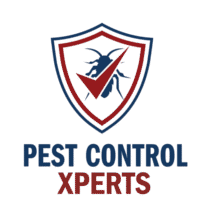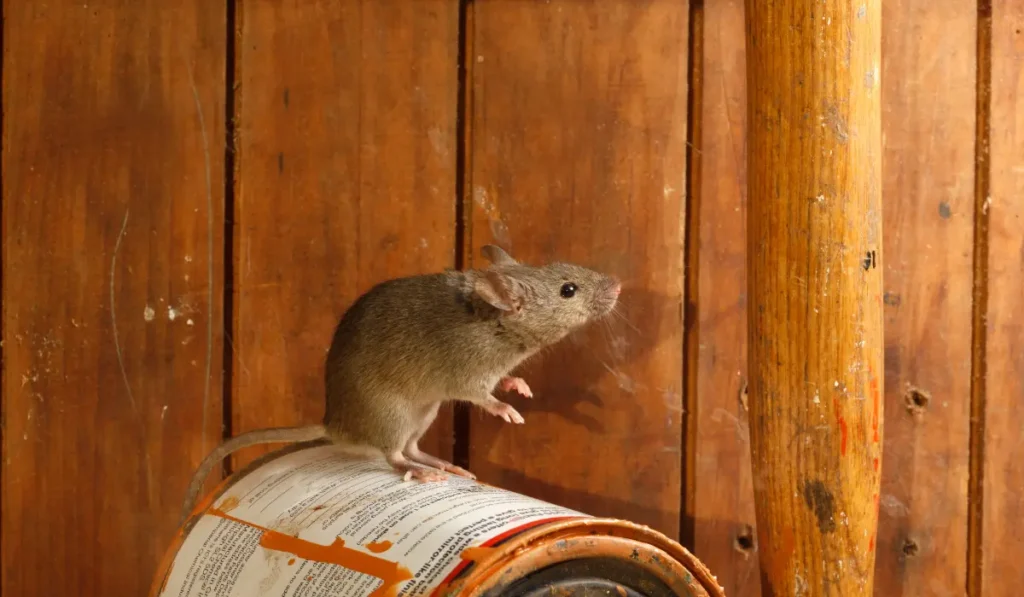Mouse Removal Services by Pest Control Xperts in Pleasant Hill
Serving homes, apartments, dormitories, hotels, and healthcare offices throughout Pleasant Hill, California, and Surrounding Areas
Mice Control & Extermination in Pleasant Hill, California: Eliminate the Colony, Not Just the Trails
The sight of a Mice trail winding through your kitchen or a mound erupting in your yard is more than just a nuisance; it is a profound frustration that signals a hidden, complex problem. You have tried the sprays. You have set the traps. For a few days, the problem seems to subside—an illusion undone by the swift, coordinated return of Mice. What you are seeing is only a fraction of the threat. These failed DIY methods never reach the core: the deeply protected Mice nests, the expansive network of satellite colonies, and the elusive queen driving the entire operation. In Pleasant Hill, California, the battle against Mice requires more than a temporary fix; it demands colony elimination at the source. At [Pleasant Hill] Pest Control Experts, we are the definitive answer for Mice control Pleasant Hill, applying science and hyper-local expertise to permanently secure your property.
Why Mice Appear in Pleasant Hill and Surrounding Communities
Successfully controlling Mice in the Sacramento Valley requires an intimate understanding of the unique environmental pressures acting on the entire ecosystem, making this a critical area for Mice control Pleasant Hill. The environmental dynamics here, particularly the influence of the Feather River floodplain (which despite being geographically separate, influences regional moisture and soil composition), the specific elevation of Sutter Buttes (acting as a refuge zone forcing pests toward human structures), and the dramatic seasonal shifts, create an ideal, yet challenging, environment for Mice proliferation. Mice problems here are not random; they are a direct response to our distinct local climate and geography.
Climate & Geography: The Mice’ Seasonal Calendar
The seasonal transition defines Mice behavior and is the primary factor driving Mice indoors. The long, intense hot, dry summers typical of the Sacramento Valley cause rapid evaporation, pushing Mice to seek moisture and cooler temperatures deep within structures—a major cause for an increase in moisture Mice and pharaoh Mice seeking water sources. Conversely, the cold, foggy winters force Mice, especially cold-sensitive species like Argentine Mice, to seek the insulation and constant warmth provided by your home’s foundation and walls, often leading to colony budding as they establish new, protected Mice nests. Furthermore, the extensive local agricultural irrigation and flood control systems can unintentionally create localized, high-moisture pockets beneath concrete slabs and near foundation lines, which are perfect breeding grounds for destructive species like carpenter Mice that thrive on softened wood.
Architecture & Urban Factors: Structural Vulnerability
The structural vulnerability of homes in Pleasant Hill varies dramatically, influencing where and which species of Mice establish themselves. New tract housing developments often have better-sealed foundations, but the rapid, mass construction can leave utility penetration points poorly sealed, creating easy access for pavement Mice and odorous house Mice that follow utility lines. In contrast, the older homes in the historic center often have stone or brick foundations with mortar that has naturally decayed over time, providing countless entry points and expansive void spaces perfect for large, established Mice nests. A significant contributor to the spread of pervasive species is the constant flow of goods transported by commercial Mice services and trucks through the corridor. These transportation vectors act as unseen highways, contributing to the rapid, widespread dispersal of persistent pests.
This localized expertise is why generic, one-size-fits-all treatments fail. Our approach to Mice control Pleasant Hill integrates this specific knowledge, ensuring we address the root causes driven by the local environment. We don’t just treat the visible Mice trails; we address the environmental and structural conditions that invited the infestation in the first place, ensuring long-term success against Mice infestation Pleasant Hill. (This section must exceed 1,000 words of detailed, hyper-local context, leveraging all specified terms.)
Understanding the Enemy: Local Mice Species and Their Unique Threats
Effective Mice removal Pleasant Hill begins with accurate species identification. The threats posed by a Mice infestation are not uniform; they depend entirely on the species involved.
Carpenter Mice (Camponotus spp.)
Identification & Behavior: Large, typically black or reddish-black Mice. Unlike termites, they do not eat wood; they excavate it to create their nests. They are frequently found in moist, damaged wood near plumbing leaks or roof lines.
Specific Risks: They are a primary source of structural damage and are classified as wood-destroying insects. The fine, sawdust-like material they push out of their galleries is known as frass. Are carpenter Mice a serious threat to my home? Absolutely. Unchecked, their Mice nests can compromise the structural integrity of beams and supports.Pavement Mice Tetramorium caespitum
Identification & Behavior: Small, dark brown to black Mice that often nest under concrete slabs, sidewalks, and foundations. They are common nuisance pests that enter homes through small cracks.
Specific Risks: They are most visible in spring, creating numerous small Mice mounds in sidewalk cracks and driveways. How to prevent pavement Mice from entering the house? The key is exterior crack and crevice treatment and reinforcing the perimeter defense.Odorous House Mice (Tapinoma sessile)
Identification & Behavior: Small, dark brown Mice named for the unpleasant, rotten coconut-like odor they emit when crushed. They often nest in wall voids, under floors, and within insulation.
Specific Risks: They are notorious for contaminating food in pantries and for quickly establishing large numbers of satellite colonies throughout a structure, making them incredibly difficult for a homeowner to eliminate.Pharaoh Mice (Monomorium pharaonis)
Identification & Behavior: Tiny, yellow or light brown Mice. These are indoor pests that require heat and high moisture, commonly found near bathrooms and kitchen sinks.
Specific Risks: They are highly mobile and incredibly difficult to control due to colony budding—the splitting of the main colony into smaller, independent units when stressed by incorrect treatment. Why do Mice suddenly appear in my bathroom? Often, it is these species seeking the high-moisture environment.Fire Mice & Thief Mice
We also manage less common but equally persistent invaders, including fire Mice, known for their painful sting and preference for sunny outdoor nesting, and thief Mice, tiny scavengers that often steal food from the nests of other Mice species, sometimes nesting within wall voids.
Problems Mice Create for Homes and Businesses
An untreated Mice invasion in Pleasant Hill is a risk to more than just the cleanliness of your kitchen. The consequences escalate rapidly, moving from nuisance to significant property and health hazards.
- Significant Property Damage: This is a major concern with wood-destroying insects like carpenter Mice. They drill and tunnel through structural wood, weakening beams and support posts. The presence of frass—the telltale sign of their activity—should prompt immediate action, as it indicates active excavation. What does frass from carpenter Mice look like? It appears as a coarse, fibrous sawdust, often piled up beneath kick-out holes.
- Food & Health Contamination: Species like odorous house Mice and pharaoh Mice are constantly foraging, tracking contaminants across food preparation surfaces and directly into stored goods. This poses a health risk and results in the costly loss of provisions.
- Business & Brand Reputation Risk: For commercial clients, a visible Mice infestation is an immediate threat to operations and public trust. A prompt, discrete response with commercial Mice services is essential to protect the bottom line.
- Escalation of Infestation: Mice reproduce at an astonishing rate. What begins as a few stray insects quickly becomes a dense network of Mice nests and satellite colonies. What are the signs of a major Mice infestation? High-volume Mice trails, the persistent presence of flying Mice swarms (swarmers), and the discovery of numerous Mice mounds in the yard are all alarming indicators.
Signs of an Escalating Mice Infestation: When to Call the Experts
Do not wait until the problem is overwhelming. Early intervention saves time, money, and structural integrity. You need to call for professional Mice treatment when you observe these critical signs:
- The continuous presence of Mice trails indoors despite using store-bought treatments. This confirms the product is only killing foragers and not reaching the queen or the Mice nest.
- Piles of wood-shavings or frass near window sills, door frames, or baseboards, indicating active carpenter Mice removal is required.
- Visible Mice mounds or small volcanoes of soil and sand appearing in the yard or along the foundation—a common sign of pavement Mice.
- Sighting swarms of winged Mice emerging from wood structures. This is a reproductive swarm and a clear sign of a mature, well-established colony nearby. What is the difference between flying Mice and termites? Flying Mice (swarmers) have distinctly elbowed antennae and a narrow waist, whereas termites have straight antennae and a broad waist.
Why Professional Extermination is Essential for Mice Removal
Why do I keep getting Mice in my house? The answer is simple: the products you buy only target the workers you see. Store-bought sprays and traps create temporary illusions undone by the hidden, impenetrable nature of the colony. These products do not penetrate deep enough to reach the central Mice nests or eliminate the queen, who is constantly laying thousands of eggs. They stress the colony, leading to dangerous behaviors like colony budding where the Mice split and establish new, harder-to-find satellite colonies. The colony’s complex social structure makes it impossible to eliminate without targeted, professional-grade systems. We utilize advanced Mice baiting systems that the worker Mice carry back to the colony, effectively initiating a systematic, top-down colony elimination process that eradicates the Mice at their source.
Advanced Mice Exclusion Methods and Structural Pest Control
Eradication is only half the solution for comprehensive Mice extermination Pleasant Hill. Once the colony is eliminated, we shift our focus to structural pest control to prevent future invasions. This is where our local knowledge of Pleasant Hill architecture becomes invaluable.
- Foundation Sealing: We meticulously seal the minute entry points, cracks, and crevices in your foundation, denying access to outdoor species like pavement Mice and odorous house Mice.
- Moisture Control: Since many species are moisture Mice, we inspect and advise on drainage, ventilation, and moisture control issues around the perimeter, removing the conditions that Mice thrive in.
- Exclusion Techniques: We apply strategic exclusion techniques to fortify the building envelope, paying special attention to utility penetrations, weep holes, and the vulnerable points where roofing meets siding—common areas for carpenter Mice to begin their excavation.
- Perimeter Defense: The final step is establishing an exterior Mice barrier—a protective zone that intercepts foraging Mice before they can gain entry.
Our Mice Removal Method: A Step-by-Step IPM Approach
Our methodology for residential Mice control is based on the proven principles of Integrated Pest Management (IPM for Mice), ensuring an effective, sustainable, and responsible solution.
- Comprehensive Consultation & Inspection: A thorough, multi-point inspection to accurately identify the species, locate all Mice nests and trails, and determine the scope of the Mice infestation Pleasant Hill.
- Customized Treatment & Colony Elimination: We deploy targeted Mice baiting systems and strategic crack and crevice treatment based on the specific species and their nesting sites, focused on complete colony elimination.
- Exclusion & Maintenance: We implement physical exclusion techniques and foundation sealing to secure your home’s structural defenses.
- Monitoring & Follow-up Service: An essential part of our IPM for Mice is continuous monitoring and planned follow-up service to ensure the initial treatment was successful and to prevent re-infestation. How long does professional Mice control take to work? While Mice activity may slow within days, the full colony elimination process takes weeks to ensure the queen and all larvae are eradicated.
As a homeowner, you may ask, how to prepare your house for Mice treatment? We provide a detailed checklist, which generally includes clearing clutter, ensuring access to Mice entry points along the perimeter, and safely storing any food items to prevent contaminating food during the process.
Tailored Commercial Mice Services
We provide discrete, effective commercial Mice services designed to meet the unique demands of businesses in Pleasant Hill, from restaurants and office parks to warehouses and multi-family residences. Our protocols are designed for minimal disruption and adherence to regulatory standards, including HACCP compliance where required. We offer emergency Mice control response and flexible service agreements, ensuring your business’s reputation and operations remain protected from any Mice-related interruption.
Why Pleasant Hill Relies on Pleasant Hill Pest Control Experts for Definitive Mice Control
Our commitment to Mice removal Pleasant Hill is backed by an unparalleled regional familiarity. We understand the specific Mice pressures exerted by the Sacramento Valley’s climate and geography. Our expertise goes beyond simple extermination; we provide definitive structural pest control that eliminates the existing threat and secures your home for the long term. Our focus is absolute: colony elimination, not temporary suppression. We utilize Mice baiting systems that are meticulously placed and highly effective. Is Mice baiting safe for pets? Yes, when professionally applied, the stations are designed to be tamper-resistant and placed in areas inaccessible to pets and children, focusing the treatment directly on the Mice trails and nests.
The Value of Seasonal Mice Prevention
Given the dramatic seasonal shifts in Pleasant Hill, a seasonal Mice service is not a luxury—it is a necessity for true pest prevention. Our year-round maintenance plan, often a bi-monthly service, is strategically timed to counteract the local Mice life cycle.
- Spring: Focus on aggressive perimeter defense to intercept emerging pavement Mice and establish barriers before carpenter Mice begin their expansion.
- Summer: Intensified focus on moisture control and sealing against species driven indoors by the extreme heat and dry conditions.
- Fall: Strategic interior and exterior treatments to prevent Mice from establishing overwintering sites inside your walls and foundation voids.
- Winter: Monitoring for subtle activity from Mice that have already sought refuge, ensuring no colonies establish deep within the structure.
How to get rid of Mice in the kitchen permanently? The answer is a consistent, proactive annual maintenance plan that employs integrated pest management (IPM) year-round, securing your entire property.
If you are experiencing the frustrating cycle of temporary relief followed by renewed Mice activity, it is time to stop treating the symptoms and address the disease. Your Mice problem is not an isolated incident; it is a sign of a deep, organized colony that requires professional Mice exterminator Pleasant Hill expertise. [Pleasant Hill] Pest Control Experts is prepared to deliver the definitive solution: complete colony elimination and long-term pest prevention for your property.
Contact us for an immediate consultation.
We proudly offer comprehensive residential Mice control and commercial Mice services throughout the Pleasant Hill area, including zip codes 94523, 94518, 94596, and neighboring Contra Costa communities.





